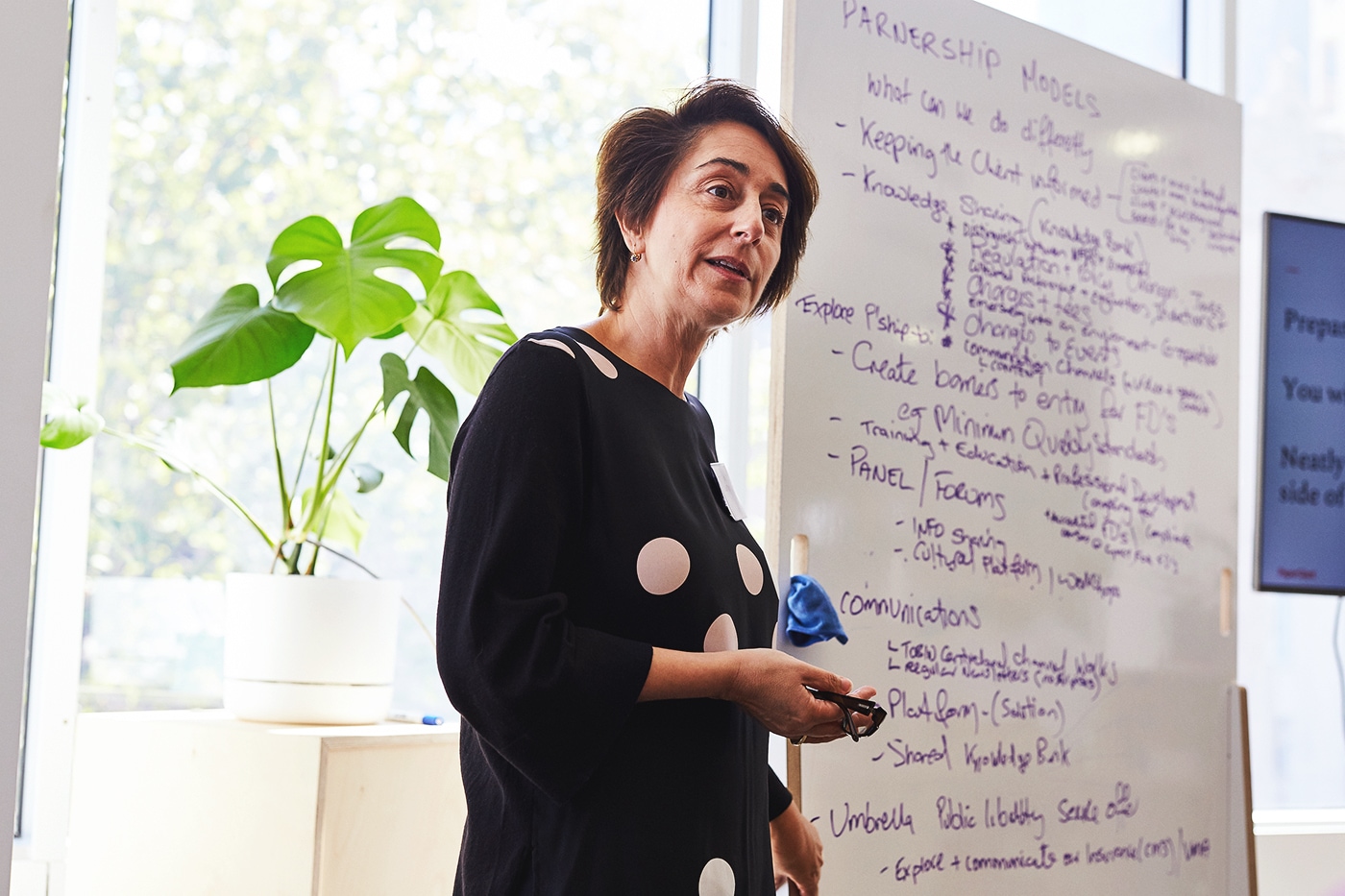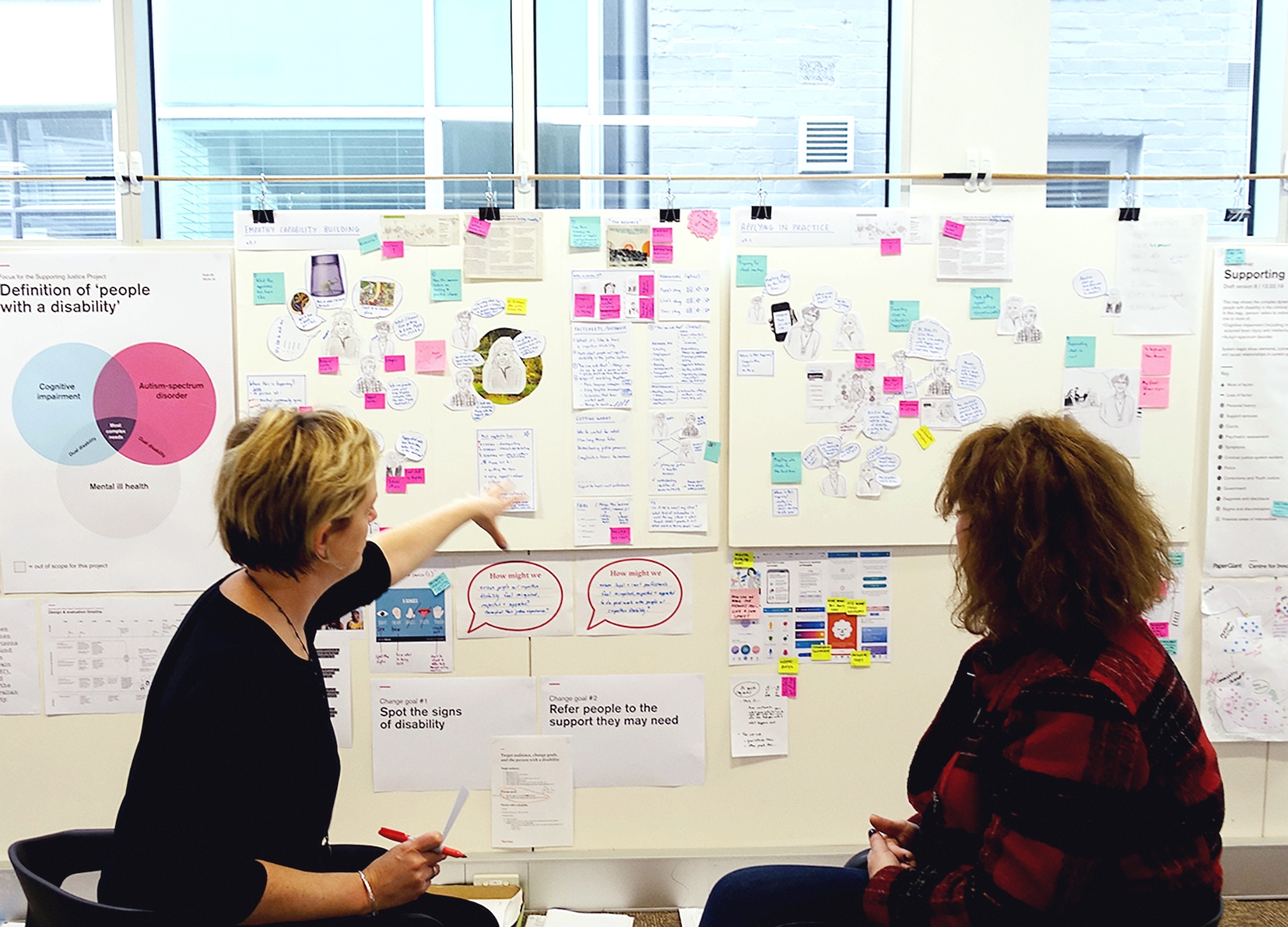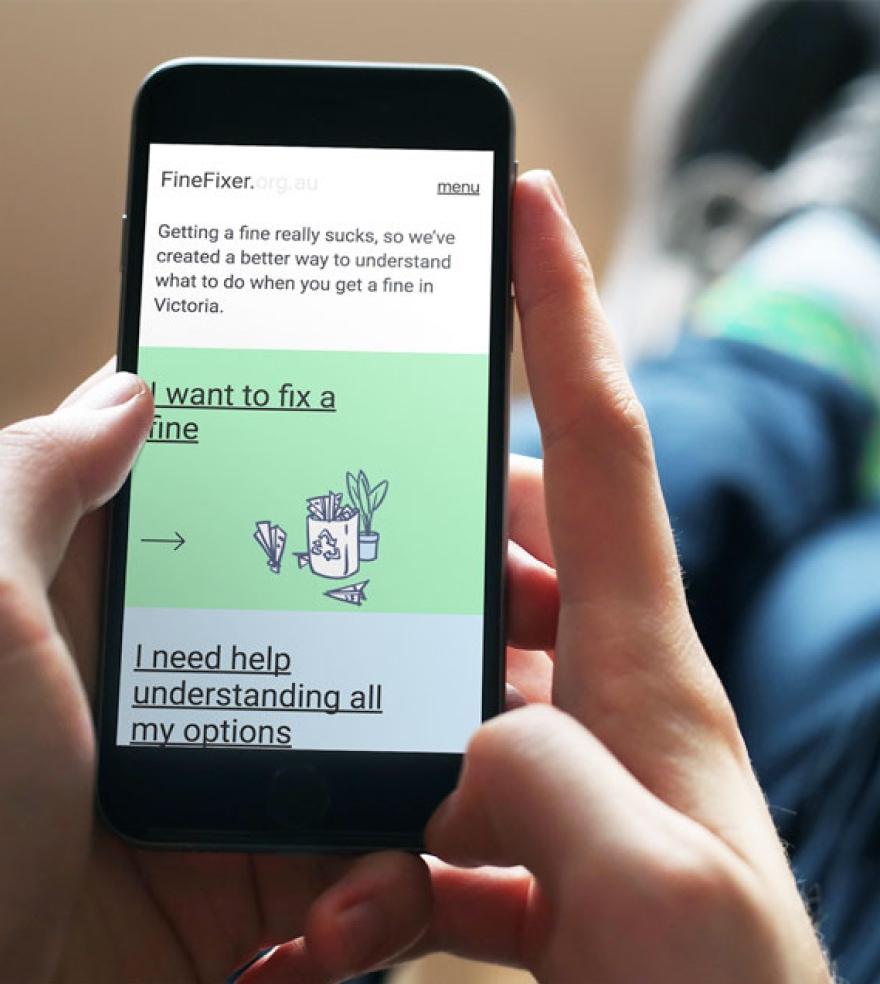Legal and Justice
Fair and equal access to justice is a key component of a thriving democracy and a functioning society. At Paper Giant, using strategic design to improve access to justice is a core part of our mission.
Our approach
Most work within the justice system requires cross-agency and cross-organisational engagement, and alignment on goals and purpose is paramount to the success of any project.
Our approach to working with the sector is highly collaborative to ensure that alignment.
Our extensive experience applying design in the justice sector at all scales – from our first client (a small community legal centre), right up to redesigning service delivery for the Supreme Court of Victoria – gives us a unique perspective on the challenges and complexities of the sector.

What we do
Use systems thinking to identify and remove barriers to justice
There are real barriers to accessing justice, many of them unintentional - sometimes people don’t recognise that they have a legal issue until too late, information might be provided in ways that is not accessible to those that need it most, or in the worst cases the lack of systemic connection between organisations means the the most vulnerable people in our society can slip through the cracks and get caught in cycles of disadvantage.
Incorporate the perspectives of people with lived experience
We are especially mindful of valuing the input of people with direct lived experience of the justice system. We always try to use a process that includes input from people across the system, whether it’s initial stakeholder engagement, research with internal staff or service providers, or inclusive co-design and testing of concepts.
Build on existing knowledge
Paper Giant’s experience in the justice sector has taught us that any justice reform works best when it builds on existing knowledge and practice, and is implemented through iterative changes with frameworks in place for prototyping, monitoring and learning from these changes.
Who we've worked with












